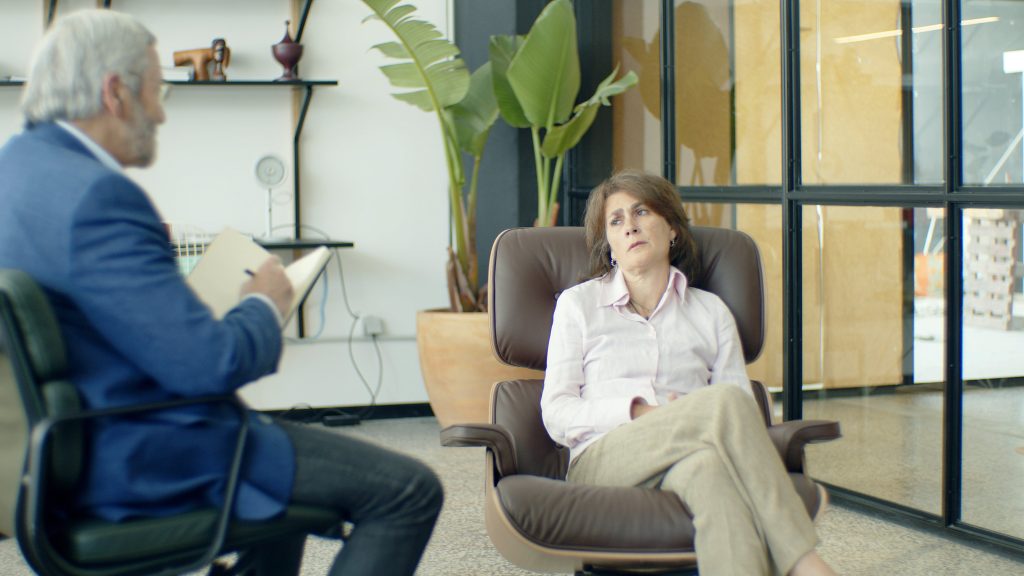Ad Blocker Detected
Our website is made possible by displaying online advertisements to our visitors. Please consider supporting us by disabling your ad blocker.
Are you considering testosterone replacement therapy? It’s important to understand the potential benefits and risks before making a decision. Testosterone replacement therapy can provide numerous benefits, such as increased energy levels, improved sexual function, and enhanced muscle mass. However, it’s essential to be aware of the risks, including potential side effects like acne, increased risk of blood clots, and sleep apnea. By understanding both the pros and cons, you can make an informed decision about whether testosterone replacement therapy is right for you.
What Are the Risks of Long-Term Testosterone Replacement Therapy?
In the testosterone lifespan article, long-term testosterone replacement therapy has some potential risks. These may include an increased risk of heart disease, sleep apnea, and prostate enlargement. It’s important for individuals considering this therapy to consult with a healthcare provider and weigh the potential benefits against these risks.
Understanding the Benefits and Risks of Testosterone Replacement Therapy

This image is property of images.pexels.com.
Introduction to Testosterone Replacement Therapy
Testosterone Replacement Therapy (TRT) is a treatment option for individuals who have low levels of testosterone. It involves replacing or supplementing the natural testosterone in the body with synthetic forms of the hormone. TRT aims to alleviate symptoms associated with low testosterone and improve overall well-being. However, like any medical intervention, TRT comes with its own set of benefits and risks that should be carefully considered.
Benefits of Testosterone Replacement Therapy
Testosterone Replacement Therapy offers several potential benefits for individuals with low testosterone levels. These benefits include increased muscle mass and strength, improved bone density, increased libido and sexual function, enhanced mood and well-being, and improved cognitive function.
Increased Muscle Mass and Strength
One of the primary benefits of TRT is the potential for increased muscle mass and strength. Testosterone plays a crucial role in protein synthesis, which is essential for the development and maintenance of muscle tissue. By optimizing testosterone levels, TRT can help individuals experience greater gains in muscle mass and increased strength during exercise and resistance training.
Improved Bone Density
Testosterone is also important for maintaining bone health. Low testosterone levels can lead to decreased bone density and increase the risk of osteoporosis and fractures. TRT can help improve bone density, leading to stronger bones and reducing the risk of fractures in individuals with low testosterone levels.
Increased Libido and Sexual Function
Testosterone is closely linked to sexual function and libido in both men and women. Low testosterone levels can contribute to a decrease in sexual desire and performance. TRT can help increase libido and improve sexual function, enhancing overall sexual well-being for individuals with low testosterone.
Enhanced Mood and Well-being
Low testosterone levels are often associated with mood disturbances, including irritability, fatigue, and depression. TRT can help improve mood and overall well-being by addressing hormonal imbalances. By restoring testosterone levels to normal, individuals may experience improved energy levels, reduced fatigue, and a more positive outlook on life.
Improved Cognitive Function
Studies have suggested a potential link between testosterone levels and cognitive function. Low testosterone levels have been associated with cognitive decline, memory problems, and decreased concentration. TRT may help improve cognitive function and enhance mental clarity and focus in individuals with low testosterone.

This image is property of images.pexels.com.
Risks and Side Effects of Testosterone Replacement Therapy
While Testosterone Replacement Therapy can offer significant benefits, it is important to be aware of the potential risks and side effects associated with this treatment. Some of the risks and side effects of TRT include cardiovascular risks, prostate health concerns, sleep apnea, acne and skin issues, fluid retention, hematocrit level abnormalities, breast tenderness and gynecomastia, infertility, testicular shrinkage, hair loss, and emotional and psychological changes.
Cardiovascular Risks
There is some concern that TRT may increase the risk of cardiovascular events such as heart attacks and strokes, especially in individuals with pre-existing heart conditions. However, research on this topic has yielded conflicting results, and more studies are needed to establish a clear link between TRT and cardiovascular risks. It is crucial for individuals considering TRT to discuss their cardiovascular health with a healthcare professional and undergo appropriate screenings before starting therapy.
Prostate Health
TRT may pose potential risks to prostate health. Testosterone can stimulate the growth of prostate tissue, which raises concerns about the development or exacerbation of benign prostatic hyperplasia (BPH) or prostate cancer. Before starting TRT, individuals should undergo a thorough prostate evaluation, including a digital rectal exam and prostate-specific antigen (PSA) blood test, to minimize the risks associated with existing prostate conditions.
Sleep Apnea
Testosterone Replacement Therapy has been associated with an increased risk of sleep apnea. Sleep apnea is a condition characterized by interruptions in breathing during sleep, leading to inadequate oxygen supply to the body. Individuals with existing sleep apnea or those who are at high risk for developing it should be cautious when considering TRT.
Acne and Skin Issues
An increase in testosterone levels can contribute to the development of acne and skin issues. Hormonal imbalances caused by TRT may lead to increased oil production, which can clog pores and result in acne breakouts. Individuals considering TRT should be aware of the potential for acne and discuss appropriate skincare measures with their healthcare provider.
Fluid Retention
TRT may cause fluid retention in some individuals. Fluid retention can lead to swelling in the legs, ankles, or other parts of the body. If fluid retention becomes a concern, a healthcare professional may adjust the TRT dosage or explore alternative treatment options to alleviate this side effect.
Hematocrit Level Abnormalities
Testosterone Replacement Therapy can affect the production of red blood cells, potentially leading to hematocrit level abnormalities. Elevated hematocrit levels can increase the risk of blood clot formation and other cardiovascular complications. Regular blood tests and monitoring are necessary to ensure that hematocrit levels remain within a safe range during TRT.

This image is property of images.pexels.com.
Breast Tenderness and Gynecomastia
A potential side effect of TRT is breast tenderness or the development of gynecomastia, which refers to the enlargement of breast tissue in males. Testosterone can convert to estrogen, leading to hormonal imbalances that may cause breast-related issues. Individuals experiencing these side effects should consult with their healthcare provider for appropriate management strategies.
Infertility and Testicular Shrinkage
TRT may suppress natural testosterone production and, in some cases, result in testicular shrinkage. This can lead to a temporary or permanent decrease in fertility. Individuals desiring to maintain fertility should discuss this concern with their healthcare provider and explore alternative options or hormone therapies that preserve fertility.
Hair Loss
While not everyone experiences it, testosterone can contribute to hair loss in individuals who are genetically predisposed to male pattern baldness. Individuals concerned about hair loss should discuss this potential side effect with their healthcare provider before starting TRT.
Emotional and Psychological Changes
Testosterone Replacement Therapy may cause emotional and psychological changes in some individuals. These changes can include fluctuations in mood, irritability, and aggression. It is essential to have regular monitoring and open communication with a healthcare provider to address any emotional or psychological side effects that may arise during TRT.
Factors to Consider before Opting for Testosterone Replacement Therapy
Before deciding to undergo Testosterone Replacement Therapy, there are several factors to consider to ensure the most suitable course of action. These factors include underlying medical conditions, age and health status, medication interactions, personal expectations, and long-term commitment and monitoring.
Underlying Medical Conditions
Individuals with certain medical conditions may not be suitable candidates for TRT or may require close monitoring and specific treatment plans. Conditions such as prostate cancer, breast cancer, severe heart or liver disease, and untreated sleep apnea may affect the suitability or safety of TRT. It is crucial to discuss any underlying medical conditions with a healthcare professional to determine the appropriate course of action.
Age and Health Status
Age and overall health play a significant role in determining the suitability of TRT. Younger individuals with low testosterone levels may require more thorough evaluation to identify the underlying cause of their condition. Older individuals, particularly those with pre-existing health issues, may require additional monitoring and dosage adjustments to ensure the safe and effective use of TRT.
Medication Interactions
It is important to consider potential interactions between TRT and other medications an individual may be taking. Certain medications, such as blood thinners or corticosteroids, may interact with testosterone or affect its effectiveness. A healthcare provider should review all current medications to assess potential interactions and make necessary adjustments.
Personal Expectations
Every individual may have different expectations and goals when considering TRT. It is crucial to have realistic expectations and open communication with a healthcare provider regarding the potential outcomes of treatment. A healthcare professional can provide guidance and help establish realistic goals based on an individual’s unique circumstances.
Long-term Commitment and Monitoring
TRT is a long-term commitment that requires ongoing monitoring and regular follow-up appointments with a healthcare provider. Testosterone levels, hematocrit levels, and overall health should be routinely assessed to ensure the effectiveness and safety of TRT. Individuals considering TRT should be prepared for regular blood tests and periodic evaluations to optimize treatment outcomes.
Final Thoughts on Testosterone Replacement Therapy
Testosterone Replacement Therapy has the potential to offer significant benefits to individuals with low testosterone levels. Increased muscle mass and strength, improved bone density, increased libido and sexual function, enhanced mood and well-being, and improved cognitive function are among the potential advantages of TRT. However, it is essential to be aware of the risks and side effects associated with TRT, such as cardiovascular risks, prostate health concerns, sleep apnea, acne and skin issues, fluid retention, hematocrit level abnormalities, breast tenderness and gynecomastia, infertility, testicular shrinkage, hair loss, and emotional and psychological changes. By considering these factors and engaging in open communication with a healthcare provider, individuals can make informed decisions about testosterone replacement therapy and optimize their overall well-being.



